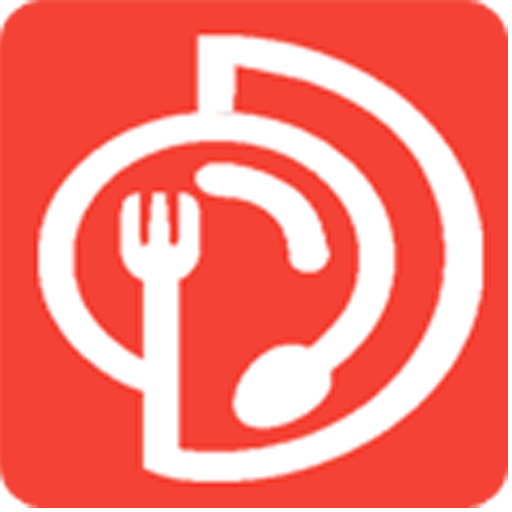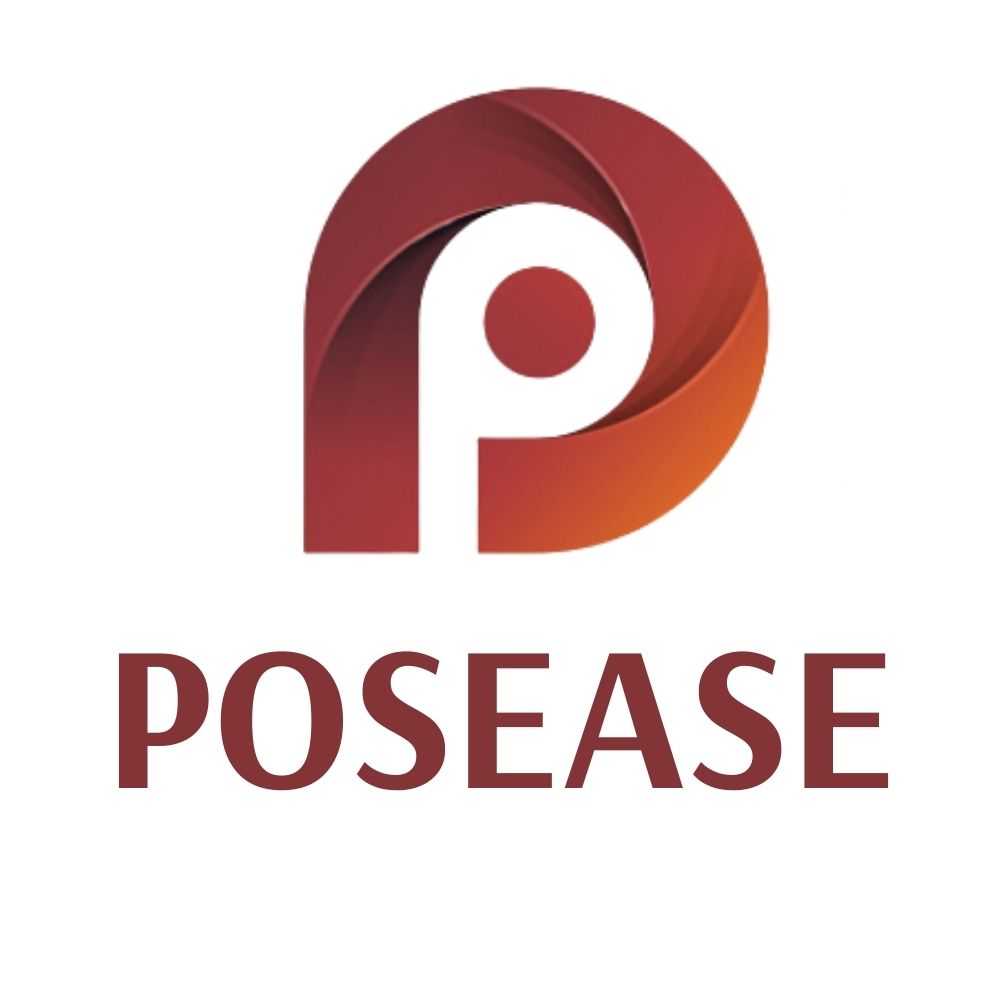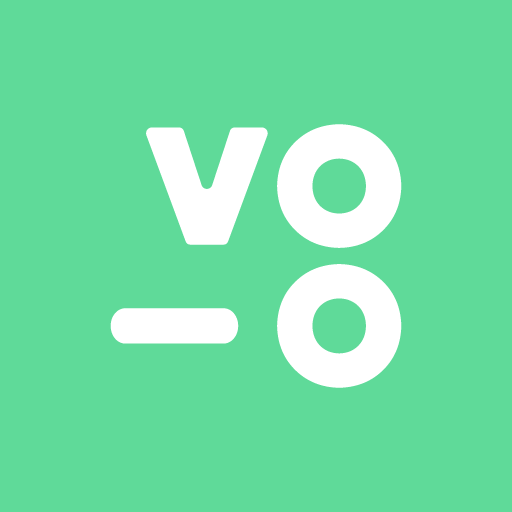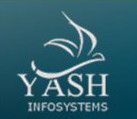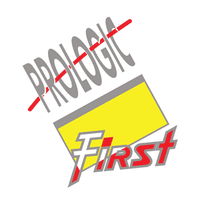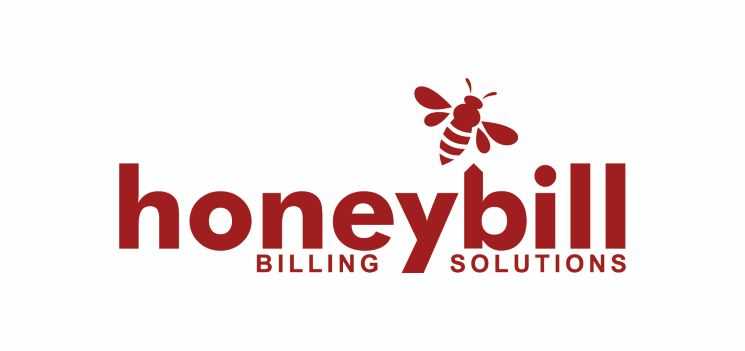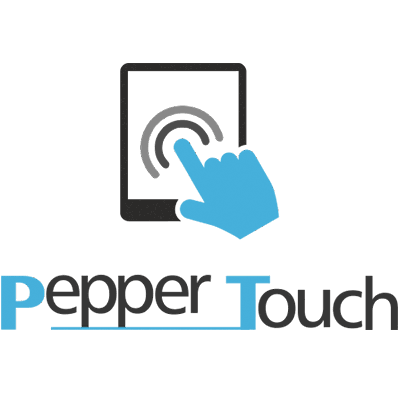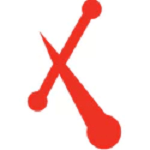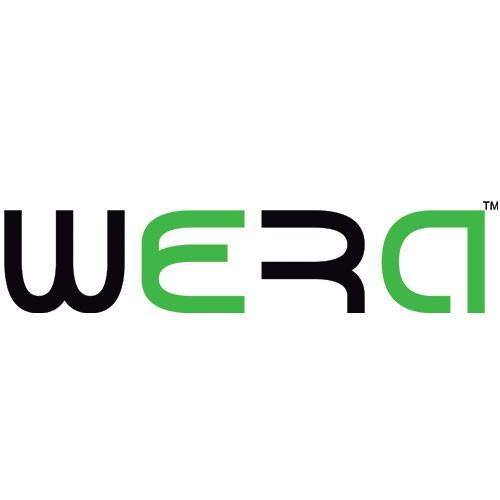Yes, most restaurant management software may be accessed from numerous devices and platforms. This means you may use the software on any device, such as a laptop, tablet, or smartphone, and on any operating system, including Windows, iOS, and Android. This enables seamless use and access to critical data, making it easier for restaurant owners to manage their operations from anywhere and at any time.
List of 20 Best Restaurant Management Software
ILecker solution for your restaurants success. Our comprehensive software offers a variety of features such as menu selection, kitchen management, and detailed reporting, transforming the way you manage your business. Give your customers a seamless d...Read More ILecker
Digirestro is a POS software designed for businesses of all sizes. Our cloud-based system includes a wide range of features such as Order Management, seamless integration with popular food delivery platforms like Swiggy, Zomato, Foodpanda, and Uberea...Read More Digirestro
PosEase is a cloud-based POS software designed to cater to the unique needs of the hospitality industry. It offers specialized features for restaurants, bars, cafes, cloud kitchens, and bakeries, simplifying operations and increasing profits for your...Read More PosEase
eHopper - a dynamic and adaptable POS solution built for the unique needs of small businesses across a range of industries. Its cloud-based platform offers a comprehensive set of tools, including inventory management, marketing features, and comprehe...Read More eHopper POS
Voolsy - the premium online ordering solution designed exclusively for restaurants! Forget about excessive third-party commissions on every food order and take charge of your business with our efficient platform. With Voolsys intuitive app and stream...Read More Voolsy
eDelivery is a food delivery solution featuring web, Android, and iOS applications. With advanced capabilities to handle vendors and monitor deliveries effortlessly, this fully flexible platform is built to enhance your mobile experience. Developed t...Read More eDelivery
DYN Digital Signage by Yash Infosystems – solution for all your digital signage requirements. Our advanced software and hardware offerings enable businesses to effectively communicate with customers, employees, and clients. Say goodbye to thir...Read More DYN Digital Signage
Touche Lite - the must-have POS software for your restaurant. Take control of your revenue and payments with ease and ensure timely invoicing and collection of all kitchen orders. Our state-of-the-art billing system simplifies your restaurants financ...Read More Touche Lite
Purbis: solution for food, laundry, logistics, and courier businesses. This comprehensive online platform streamlines order management and delivery services, helping single or multiple restaurants easily handle online orders. Customers can convenient...Read More Purbis
Honeybill Restaurant POS - the premier point-of-sale solution for your restaurant, fast food establishment, bakery, bar, dine-in service, or catering business. With a successful history and a loyal customer base of over 3000, trust Honeybill to strea...Read More Honeybill Restaurant POS
Pepper Touch POS (Point of Sale) software is a solution for your restaurant. By reducing operating expenses, improving staff productivity, and increasing profits, our advanced system transforms your restaurant operations and creates a flawless dining...Read More Pepper Touch
Ordyx is a leading restaurant software solution that offers a range of useful features, including SMS messaging, inventory tracking, and customer loyalty programs. It is compatible with both Windows and Mac devices, as well as mobile devices like iPh...Read More Ordyx
Ontabee is a highly efficient and advanced automated food ordering system that is ideally suited for restaurants of all sizes. With its user-friendly mobile platform, Ontabee simplifies the management of online food orders and provides exclusive feat...Read More Ontabee
Growth Restaurant Software - the top choice for businesses seeking a reliable and cost-effective solution. Our customized services and strategic approach have quickly gained the trust of our clients. Take your restaurant business to new heights with...Read More Growth Restaurant
Whizhop solution for restaurants and food and beverage businesses. This advanced software boasts an array of features such as digital menus, billing, KOT, inventory management, production tracking, and centralized management. With a user-friendly int...Read More Whizhop
Logicspices Food Ordering System solution for individual restaurants. This affordable and easy-to-use system eliminates the need for technical skills and includes a complimentary 15-day web trial. Customers can conveniently place their orders online...Read More LS Food Ordering System
Oracle Hospitality is a restaurant management software designed for businesses of all scales. It provides advanced features to help accelerate your restaurants growth. With its intuitive and effective systems, cultivating strong customer relationship...Read More Oracle Hospitality
FoodBucket is a restaurant management and automation solution. Our innovative iPad-based point of sale software and detailed business intelligence reports allow you to effortlessly oversee all aspects of your restaurant. Our state-of-the-art Kitchen...Read More FoodBucket
Zeffu, a cloud-based software that simplifies the purchasing process for restaurants. Our SaaS technology takes the hassle out of supplier purchasing for both independent restaurants and chains. Say farewell to time-consuming manual processes and wel...Read More Zeffu
Wera Cloud POS solution for modern businesses. Our advanced features go beyond standard billing - we offer streamlined inventory management, real-time online menu updates, and centralized control of multi-outlet operations. With seamless integration...Read More Wera Cloud POS
Learn More About Restaurant Management Software
- What Is Restaurant Management Software?
- What Are The Recent Trends In Restaurant Management Software?
- Benefits Of Using Restaurant Management Software
- Important Factors To Consider While Purchasing Restaurant Management Software?
- What Are The Key Features To Look For In Restaurant Management Software?
- Why Do Businesses Need Restaurant Management Software?
- How Much Time Is Required To Implement Restaurant Management Software?
- What Is The Level Of Customization Available In Restaurant Management Software?
- Which Industries Can Benefit The Most From Restaurant Management Software?
- Conclusion
What Is Restaurant Management Software?
Restaurant management software is a complete solution that simplifies and automates many of the duties associated with restaurant management. This program provides a one-stop solution for all of your operational needs, including order taking and processing, inventory management, and financial reporting. One of the most important advantages of restaurant management software is its capacity to manage numerous areas of a restaurant's operations at once.
Its user-friendly interface enables you to manage orders, check inventory, develop menus, and analyze employee performance all in one spot. Streamlining these processes saves time, reduces errors, and increases overall efficiency. Another critical feature of restaurant management software is the capacity to deliver real-time insights and data analysis.
It provides significant insights into revenue, inventory, and customer orders, allowing you to make data-driven business decisions. Using this data, you may discover patterns, control costs, and make informed decisions to boost profits. Additionally, restaurant management software provides a variety of tools to improve the client experience. This provides the ability to create bespoke orders, manage reservations, and interface with internet ordering platforms.
Customer satisfaction and retention are improved by providing an efficient and smooth experience. When choosing restaurant management software, it is critical to look for a solution that is tailored to your specific requirements. Whether you are a tiny independent restaurant or a major multi-location chain, there are alternatives available to meet your specific needs.
What Are The Recent Trends In Restaurant Management Software?
In recent years, the restaurant sector has seen an increase in the use of technology to streamline and improve different elements of restaurant operations. And, given the fast-paced nature of the hospitality industry, efficient and effective restaurant management software has become essential.
Let's explore, we'll look at the latest trends in restaurant management software to help you make an informed decision when buying for your business.
1. Cloud-Based Solutions: Cloud-based restaurant management software has been extremely popular in recent years. These systems provide real-time access to data and are accessible from any device with an internet connection. This trend has enabled restaurant owners and managers to have a better understanding of business operations, enable remote management, and make data-driven choices while on the go.
2. Integration With Point Of Sale (POS) Systems: Integrating restaurant management software with a POS system is critical for optimizing procedures and enhancing industry efficiency. This trend has shown that centralizing data and automating functions like inventory management, menu revisions, and sales reports reduces human error, saves time, and improves overall operations.
3. Mobile Management Capabilities: The proliferation of mobile devices has had an impact on the restaurant management software market. Many suppliers now provide mobile apps that enable business owners and managers to monitor, control, and make adjustments to their operations from anywhere using a smartphone or tablet. This development has enabled restaurant operators to manage their operations even when they are not physically there.
4. Artificial Intelligence (AI) And Machine Learning: The integration of AI and machine learning into restaurant management software is becoming increasingly popular. These technologies can evaluate data from a variety of sources and deliver intelligent insights and predictions to help businesses optimize operations and make sound decisions. This tendency has proven useful in areas such as demand forecasting, customer behavior analysis, and targeted marketing methods.
5. Contactless Solutions: With the spread of COVID-19, contactless solutions have become a necessity in the restaurant business. Many restaurant management software vendors now provide capabilities like online ordering, contactless payments, and digital menus to assist businesses adapt to the changing landscape while maintaining safety.
Benefits Of Using Restaurant Management Software
Restaurant management software is a strong tool that may help restaurant owners and managers streamline operations, increase productivity, and boost overall profitability.
Here are the main advantages of adopting restaurant management software:
1. Automates Operations: Restaurant management software automates monotonous and time-consuming operations including inventory management, menu revisions, and personnel scheduling. This not only saves crucial time but also reduces the possibility of human error, resulting in a smooth and error-free procedure.
2. Increases Order Accuracy: One of the primary advantages of using restaurant management software is that it helps to improve order accuracy. Orders can be accepted and delivered straight to the kitchen, eliminating the need for handwritten tickets and lowering the likelihood of errors. This leads to happy consumers and a more enjoyable dining experience.
3. Increases Efficiency: By centralizing all data and information, restaurant management software makes it easier to acquire and evaluate useful insights. This aids in making better business decisions, hence increasing overall efficiency and production.
4. Improves Customer Experience: Restaurant management software, with features such as online ordering, table reservations, and loyalty programs, can significantly improve the customer experience. It enables customers to easily place orders, make bookings, and receive rewards, resulting in higher customer satisfaction and loyalty.
5. Reduces Costs: Restaurant management software may drastically lower operational costs by automating processes, eliminating errors, and enhancing efficiency. It also helps to reduce food waste by improving inventory management, which leads to improved revenues.
6. Provides Real-Time Reporting: Real-time reporting enables restaurant owners and managers to monitor their company's performance, inventory levels, and cash flow. This allows them to make data-driven decisions while immediately identifying and addressing any concerns that may occur.
7. Simplifies Accounting: Restaurant management software includes accounting capabilities such as invoicing, payroll, and spending tracking, allowing restaurant operators to better manage their finances. This eliminates the need for manual bookkeeping while ensuring the correctness of financial data.
Important Factors To Consider While Purchasing Restaurant Management Software?
When it comes to choosing the best restaurant management software for your business, there are a few crucial elements to consider. After all, this software will form the foundation of your operations, so selecting the proper decision is critical.
Here are some crucial considerations to consider while making your decision:
1. Features And Functionality: The first and most important considerations are the software's features and functionality. You must ensure that the program includes all of the capabilities required to fulfill your restaurant's specific needs, such as menu management, table reservations, inventory management, and more.
2. Ease Of Use: Because your restaurant workers will be utilizing the software on a daily basis, you must choose a system that is simple to use and master. Complicated software can cause operational delays and employee aggravation, so when considering solutions, prioritize ease of use.
3. Integration: Another important consideration is how well the program works with the other tools and systems you use. It should work easily with your POS system, accounting software, and online ordering platform, among others. This connection will improve efficiency while reducing the possibility of errors and duplicate data entering.
4. Customization: Each restaurant has own processes and requirements, and your software should be able to adapt them. Look for software that allows you to tailor menus, reports, processes, and more to your individual requirements.
5. Scalability: As your restaurant expands, so will its software requirements. As a result, it is critical to select a system that is scalable and can expand alongside your organization. This eliminates the need to purchase new software as your operations grow.
6. Cost: While price should not be the only determining factor, it is critical to consider your budget. Make careful to consider the initial prices, recurring fees, and any additional charges for upgrades and support. Consider the expected return on investment from the software.
7. Customer Service: Restaurant operations can be chaotic, so you should find a software company that provides dependable customer service. They should be available to address any technical concerns or queries you may have and provide prompt and effective solutions.
By taking these aspects into account, you can make an informed decision about which restaurant management software is ideal for your company. Don't be afraid to schedule demos and ask for references to have a deeper idea of the software's capabilities and track record. With the appropriate software, you can streamline your operations and propel your restaurant to the next level.
What Are The Key Features To Look For In Restaurant Management Software?
Having the correct management software is critical for successfully running a restaurant. With so many alternatives on the market, it can be difficult to evaluate which features are required for your organization.
To assist you with your quest, below are the five crucial characteristics to look for in restaurant management software:
1. The Point Of Sale (POS) System: A reliable and user-friendly POS system is the foundation of any restaurant management software. Look for a system that can accept numerous payment methods, track sales and inventory, and create real-time information to aid decision-making.
2. Table Management: Choose software that lets you to manage reservations, assign tables, combine or divide checks, and monitor table turn times. This feature makes better use of space and improves the guest's dining experience.
3. Menu Management: An comprehensive menu management system can help to streamline operations by allowing for real-time updates to menu items, prices, and availability across numerous locations.
4. Inventory Management: This function allows you to track and manage inventory levels, provide automated warnings for low stock, and gain insight into ingredient utilization. It helps to eliminate waste and improve ordering, saving time and money.
5. Staff Management: Select software that allows you to schedule shifts, monitor employee performance, and manage payroll. This functionality is particularly valuable for companies with a large workforce and multiple locations.
6. Customer Relationship Management (CRM): An excellent CRM function enables you to save and retrieve customer information, track preferences, and offer targeted incentives. This can increase client loyalty and encourage repeat business.
7. Comprehensive Reporting And Analytics: are required to make informed decisions. Look for software that can generate precise information on sales, inventory, labor costs, and other metrics in real time.
8. Mobile Accessibility: In today's fast-paced environment, having the ability to access your management system from anywhere is critical. Choose software that has a mobile app or web-based access, so you can manage your business from anywhere.
9. Integration With Third-Party Apps: Look for software that works with other tools including accounting software, online ordering platforms, and marketing tools. This can help to streamline operations and reduce the amount of time spent manually entering data.
10. Technical Help: Finally, make sure that the software vendor provides trustworthy technical help around the clock. This can make a major difference when dealing with technical issues or trying to master the software.
With these crucial qualities in mind, you can make an informed selection when selecting restaurant management software. Invest in a system that meets your specific business goals and budget, and watch as it streamlines processes, increases efficiency, and drives growth.
Why Do Businesses Need Restaurant Management Software?
Modern food and beverage enterprises rely heavily on restaurant management software. It enables restaurant owners and managers to streamline operations, increase efficiency, and provide better customer service. Given the fast-paced and competitive nature of the restaurant sector, having dependable and effective management software is critical to success.
Here are some of the most important reasons why businesses require restaurant management software.
1. Effective Administration Of Orders And Inventory: Keeping track of inventory, sales data, and orders can be a difficult and time-consuming chore for restaurants. However, using restaurant management software makes this procedure more controllable and accurate. The software can automatically track inventory levels, update them in real time, and provide reports that provide insight into ingredient utilization and prices. This enables businesses to eliminate waste, optimize their menus, and make more informed purchase decisions.
2. Streamlines Reservation And Table Management: One of the most difficult difficulties in the restaurant sector is handling bookings and table allocations. Restaurant management software enables businesses to effortlessly accept reservations, distribute tables, and efficiently manage waitlists. This shortens customer wait times, improves the dining experience, and increases overall customer happiness.
3. Streamlines Employee Management: Managing staff, schedules, and payroll may be time consuming and error-prone. Restaurant management software simplifies employee management by providing a consolidated platform for scheduling shifts, tracking attendance, and processing payroll. Furthermore, the program may track employee performance, training, and certifications, ensuring that employees are properly trained and giving excellent customer service.
4. Improves Client Experience: With increasing competition in the restaurant industry, offering excellent customer service is critical. Restaurant management software enables businesses to examine consumer data, preferences, and comments. This allows them to personalize their offerings, develop loyalty programs, and enhance the entire consumer experience.
5. Offers Useful Insights For Decision-Making: Restaurant management software offers real-time reports and analytics that provide useful information about the company's performance. It can monitor sales, expenses, and revenue, allowing owners and managers to make data-driven decisions that can help their businesses develop.
How Much Time Is Required To Implement Restaurant Management Software?
The time it takes to implement restaurant management software varies based on a number of factors, including the software's sophistication, the size of your business, and available resources. The implementation procedure can last anything from a few weeks to many months. Smaller, smaller restaurants with a restricted menu and uncomplicated operations should expect a shorter implementation period, often 4-6 weeks.
This is because they have fewer processes and data to move, requiring less training for their employees. Larger restaurants, on the other hand, may require a 2-3 month implementation period due to many locations, diverse menus, and sophisticated operations. Restaurant management software deployment often consists of multiple processes, including data migration, customization, training, and testing.
During the data migration step, your current data, including menu items, inventory, and customer information, will be moved to the new platform. This process can take a few days to a week, depending on the volume and quality of your data. customisation, or adapting the software to your specific restaurant needs, can take anywhere from a few days to a few weeks, depending on the extent of customisation required.
This stage is critical since it guarantees that the software matches your specific business needs. Next, your employees will need to go through training to understand how to use the new program efficiently. Training length varies based on the software's sophistication. However, most software suppliers give extensive training and assistance to help your team get up and running quickly.
After all of these stages are finished, the software will be tested to ensure that it runs properly and satisfies all of your business requirements. This final stage can take a few days or a week. Overall, the implementation time for restaurant management software is relatively quick, given the benefits it provides in streamlining processes and increasing efficiency. As a result, it is critical to select a reputable software vendor who provides outstanding assistance and guidance during the deployment phase.
What Is The Level Of Customization Available In Restaurant Management Software?
Restaurant management software provides varying levels of customisation based on each establishment's individual needs and preferences. This enables restaurant owners and managers to adjust the software to their individual workflows and operations, making it an effective tool for optimizing their business processes. At a basic level, most restaurant management software provides adjustable menus and layouts, allowing users to design and organize the interface to suit their chosen working style. This can include rearranging tabs, adding or removing functionality, and modifying the general appearance and feel of the software.
Beyond cosmetic customization, professional restaurant management software supports more in-depth customization, such as creating and altering custom reports, assigning special permissions to individuals, and designing unique procedures for different regions of the restaurant. This is particularly useful for larger businesses with several sites or more sophisticated processes.
Furthermore, some restaurant management software provides API or connectivity features, which allow for additional customization by connecting to other business tools or platforms. This allows restaurant owners to design a completely customized and integrated solution that suits their individual requirements and streamlines their operations even further.
Overall, the level of customization in restaurant management software varies widely, but with the proper supplier and features, it can be completely adapted to meet the specific demands of every business. It is critical for purchasers to carefully evaluate their needs and select software that provides the level of customization required for their organization to succeed.
Which Industries Can Benefit The Most From Restaurant Management Software?
Restaurants are a fast-paced and dynamic industry in which corporate performance is strongly dependent on efficient management and operations. In today's digital age, technology is important for staying ahead in the competitive restaurant market. This is where Restaurant Management Software (RMS) comes into play, allowing businesses to streamline operations and increase earnings. RMS is a comprehensive solution developed to meet the special requirements of the restaurant business. It provides a variety of features and functionality, such as table management, inventory control, staff scheduling, and online ordering, to name a few. RMS, with its automation and data analysis capabilities, can benefit a wide range of enterprises in the restaurant sector.
1. Full-Service Restaurants: Full-service restaurants that provide both dine-in and table service might greatly benefit from RMS. RMS streamlines operations and improves the overall customer experience by efficiently managing tables and reservations, communicating orders to the kitchen, and tracking inventory in real time. Full-service restaurants can improve their productivity and profitability by automating processes.
2. Quick-Service Restaurants: Quick-service restaurants, sometimes known as fast-food outlets, must operate with speed and accuracy in all aspects. RMS can assist with order processing, inventory management, and sales tracking, resulting in a more organized and effective operation. Furthermore, with the growing popularity of online ordering and delivery, RMS helps quick-service restaurants to manage orders and deliveries more efficiently, enhancing overall service and profitability.
3. Bars And Pubs: RMS can also tremendously assist the bar and tavern industry. Bars and pubs can streamline operations and reduce manual labor by implementing features such as table management, inventory control, and staff scheduling. This allows the team to focus on providing excellent customer service, resulting in higher customer satisfaction and repeat business.
4. Cafes And Coffee Shops: Cafes and coffee shops are popular hangouts for many people, and with the rise of remote working, the demand for these facilities has grown. RMS can assist cafes and coffee shops in managing an increasing amount of orders, tracking sales and inventory, and improving customer loyalty through loyalty programs and focused marketing initiatives.
5. Food Trucks: Food trucks have gained popular among consumers due to their range of cuisines and convenience. However, managing a food truck presents unique obstacles, such as limited space and resources. RMS can assist food truck companies manage orders, track sales, and control inventory all from a small and efficient software package.
Conclusion
Finally, selecting the correct restaurant management software is critical to the success of your business. It can help you save time, minimize errors, and boost operational efficiency, all while improving the entire client experience. Consider your restaurant's individual needs, such as size, cuisine, and budget.
Before making a final decision, conduct research and comparisons of other software solutions, read reviews, and request demos. Consider investing in a cloud-based solution to increase flexibility and scalability for future expansion. With the appropriate restaurant management software, you can streamline your operations and focus on providing outstanding dining experiences to your guests.
Restaurant Management Software FAQ's
Can Restaurant Management Software Be Accessed Across Multiple Devices And Platforms?
Is Restaurant Management Software Future-Proof And Adaptable To Emerging Technologies Like AI, Blockchain Or IoT?
Yes, Restaurant Management Software is intended to be future-proof and adaptable to new technologies such as AI, blockchain, and IoT. It is regularly updated and can smoothly integrate new technologies to increase productivity and keep ahead of the competition. Restaurant owners can stay current with technological improvements and improve their operations by implementing advanced features such as predictive analytics, automated order taking, and inventory management.
Is There A Free Trial Offered To Assess Restaurant Management Software Before Committing?
Yes, many restaurant management software vendors provide a free trial period to prospective users. This allows you to try out the software's features and functionality before making a decision. During the trial time, you can test out the various features and discover how they can help your restaurant operations. This also allows you to judge if the software matches your specific requirements and is user-friendly.
Does Restaurant Management Software Offer Data Security Features And Meet Regulatory Compliance Standards?
Yes, most restaurant management software includes data security measures to protect sensitive information such as customer, financial, and inventory records. This includes encryption, data backups, secure login mechanisms, and access controls.
Furthermore, many software solutions are compliant with industry rules such as the General Data Protection Regulation (GDPR) and the Payment Card Industry Data Security Standard (PCI DSS), guaranteeing that your restaurant follows data privacy and security legislation.
Can Restaurant Management Software Integrate Seamlessly With Existing Tools And Platforms?
Yes, most restaurant management software is designed to interface seamlessly with existing tools and platforms. This enables for a smooth transition and ensures that all of your systems work together effectively. Restaurant management software can be tailored to your specific POS systems, inventory management tools, or internet ordering platforms. This integration can save time and increase communication among the various areas of your restaurant's operations.


